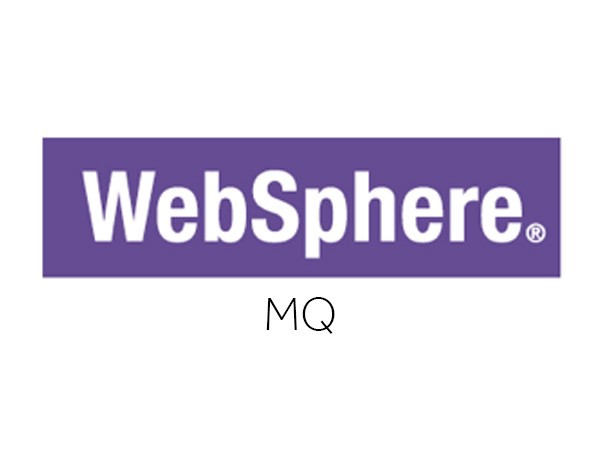
IBM MQ is available for Linux for several years and versions. Right now, it is supported on Red Hat Enterprise Linux and compatibles (Oracle Linux, CentOS, etc.) for Intel x86-64, POWER and z/Enterprise architectures, SuSE Linux for the same architectures and Ubuntu Linux on Intel x86-64.
In the following lines, I’ll explain how to install IBM MQ 9.1 (fully licensed version, not trial) on Ubuntu Linux, using Debian packages and on Red Hat Enterprise Linux (and CentOS).
Getting the binaries
To get the IBM MQ’s binaries, you need access to IBM’s Passport Advantage Online, the software distribution web page. This requires a valid software licensing contract with IBM.
Access Passport Advantage Online using the URL:
https://www.ibm.com/software/passportadvantage/
You need to have a valid IBM Passport Advantage Customer login to be able to download the software.
The files I downloaded was IBM_MQ_9.1.1_UBUNTU_X86-64.tar.gz and IBM_MQ_9.1.1_LINUX_X86-64.tar.gz. The first file, as it name indicates, has Ubuntu .deb packages, and the second has RPM packages (for Red Hat, SuSE, CentOS and other Linux distributions that use RPM as its package manager).
Package contents
Both tar files contain the same package files, although, of course, as you might know, Ubuntu uses the Debian package file format and RPM-based distributions (Red Hat, Fedora, SuSE, CentOS, etc.) use the RPM package file format.
Nevertheless, the packages are the same. These are the packages included in the distribution tar files:
| Package Name | Description | Dependencies |
|---|---|---|
| ibmmq-runtime | Common function for all other components | None |
| ibmmq-server | Queue Manager | ibmmq-runtime |
| ibmmq-client | C IBM MQ client libraries | ibmmq-runtime |
| ibmmq-java | Java™ and JMS IBM MQ APIs | ibmmq-runtime |
| ibmmq-jre | Java Runtime Environment | ibmmq-runtime |
| ibmmq-sdk | Header files and libraries for non-Java APIs | ibmmq-runtime |
| ibmmq-man | UNIX man pages for IBM MQ | ibmmq-runtime |
| ibmmq-samples | IBM MQ application samples | ibmmq-runtime |
| ibmmq-msg-cz ibmmq-msg-de ibmmq-msg-es ibmmq-msg-fr ibmmq-msg-hu ibmmq-msg-it ibmmq-msg-ja ibmmq-msg-ko ibmmq-msg-pl ibmmq-msg-pt ibmmq-msg-ru ibmmq-msg-zh-cn ibmmq-msg-zh-tw |
Additional language message catalog files. | ibmmq-runtime |
| ibmmq-mqexplorer | IBM MQ Explorer. Only on Linux x86-64 systems. | ibmmq-runtime ibmmq-jre |
| ibmmq-gskit | IBM Global Security Kit | ibmmq-runtime ibmmq-jre |
| ibmmq-web | REST API and IBM MQ Console. | ibmmq-runtime ibmmq-server ibmmq-java ibmmq-jre |
| ibmmq-ftbase | Managed File Transfer component | ibmmq-runtime ibmmq-javaibmmq-jre |
| ibmmq-ftlogger | Managed File Transfer component | ibmmq-runtime ibmmq-server ibmmq-ftbase ibmmq-java ibmmq-jre |
| ibmmq-fttools ibmmq-ftagent |
Managed File Transfer components | ibmmq-runtime ibmmq-ftbase ibmmq-java ibmmq-jre |
| ibmmq-ftservice | Managed File Transfer component | ibmmq-runtime ibmmq-server ibmmq-ftagent ibmmq-ftbase ibmmq-java ibmmq-jre |
| ibmmq-ams | Advanced Message Security component | ibmmq-runtime ibmmq-server |
| ibmmq-sfb | Install the IBM MQ Bridge to Salesforce Note: The IBM MQ Bridge to Salesforce is available only on Linux for System x (64 bit). |
ibmmq-runtime ibmmq-java ibmmq-jre |
| ibmmq-bcb | Install the IBM MQ Bridge to blockchain Note: The IBM MQ Bridge to blockchain is available only on Linux for System x (64 bit). |
ibmmq-runtime ibmmq-java ibmmq-jre |
Common installation procedure
Whatever the Linux distribution one is installing MQ on, there are common pre-installation steps that need to be taken.
First decompress the package corresponding to the type of packaging you require:
tar zxvf IBM_MQ_9.1.1_UBUNTU_X86-64.tar.gz
or
tar zxvf IBM_MQ_9.1.1_LINUX_X86-64.tar.gz
depending on your Linux distribution.
All the installation commands henceforth will have to be run as the root user.
Then, run the mqlicense.sh script:
cd MQServer
./mqlicense.sh
Installation on Red Hat and other distributions that use RPM
Installation on RPM-based Linux distributions is a simple matter of selecting the components you want to install and, as the root user, run the RPM command specifying the selected components, for example:
rpm ‑ivh MQSeriesAMS‑9.1.1–0.x86_64.rpm
MQSeriesClient‑9.1.1–0.x86_64.rpm
MQSeriesGSKit‑9.1.1–0.x86_64.rpm
MQSeriesJava‑9.1.1–0.x86_64.rpm
MQSeriesJRE‑9.1.1–0.x86_64.rpm
MQSeriesRuntime‑9.1.1–0.x86_64.rpm
MQSeriesSamples‑9.1.1–0.x86_64.rpm
MQSeriesClient‑9.1.1–0.x86_64.rpm
MQSeriesServer‑9.1.1–0.x86_64.rpm
MQSeriesWeb‑9.1.1–0.x86_64.rpm
RPM is smart enough to resolve any dependency issues and install the packages in the correct order.
Installation on Ubuntu and other Debian-based Linux distributions
Ubuntu and other Debian-based distributions use the apt or dpkg utilities for installing software packages. Contrary to RPM, dpkg and apt are not capable of resolving dependencies and, therefore, you have to install packages in the correct order.
To install the same components that were specified above for RPM-based distributions you issue the command
dpkg ‑i ibmmq-runtime_9.1.1.0_amd64.deb
ibmmq-jre_9.1.1.0_amd64.deb
ibmmq-java_9.1.1.0_amd64.deb
ibmmq-server_9.1.1.0_amd64.deb
ibmmq-web_9.1.1.0_amd64.deb
ibmmq-ams_9.1.1.0_amd64.deb
ibmmq-gskit_9.1.1.0_amd64.deb
ibmmq-client_9.1.1.0_amd64.deb
ibmmq-man_9.1.1.0_amd64.deb
ibmmq-samples_9.1.1.0_amd64.deb
ibmmq-sdk_9.1.1.0_amd64.deb
Post-installation tasks
After installing the desired packages there are a couple of more steps to do before considering IBM MQ to be installed.
Enter a description for this IBM MQ installation.
/opt/mqm/bin/setmqinst ‑i /opt/mqm ‑d “Description of MQ
installation”
Set this installation as the primary installation. This step will create symbolic links for most of the IBM MQ’s command line utilities in /usr/bin so that it is not necessary to set your PATH variable.
/opt/mqm/bin/setmqinst ‑p /opt/mqm ‑i
That’s a wrap. You have just installed IBM MQ 9.1.1 on Linux.

so far so good but what if i want to install it into a non-default location ????
In Ubuntu Linux, using Debian packages, IBM MQ can only be installed in the default location: /opt/mqm.